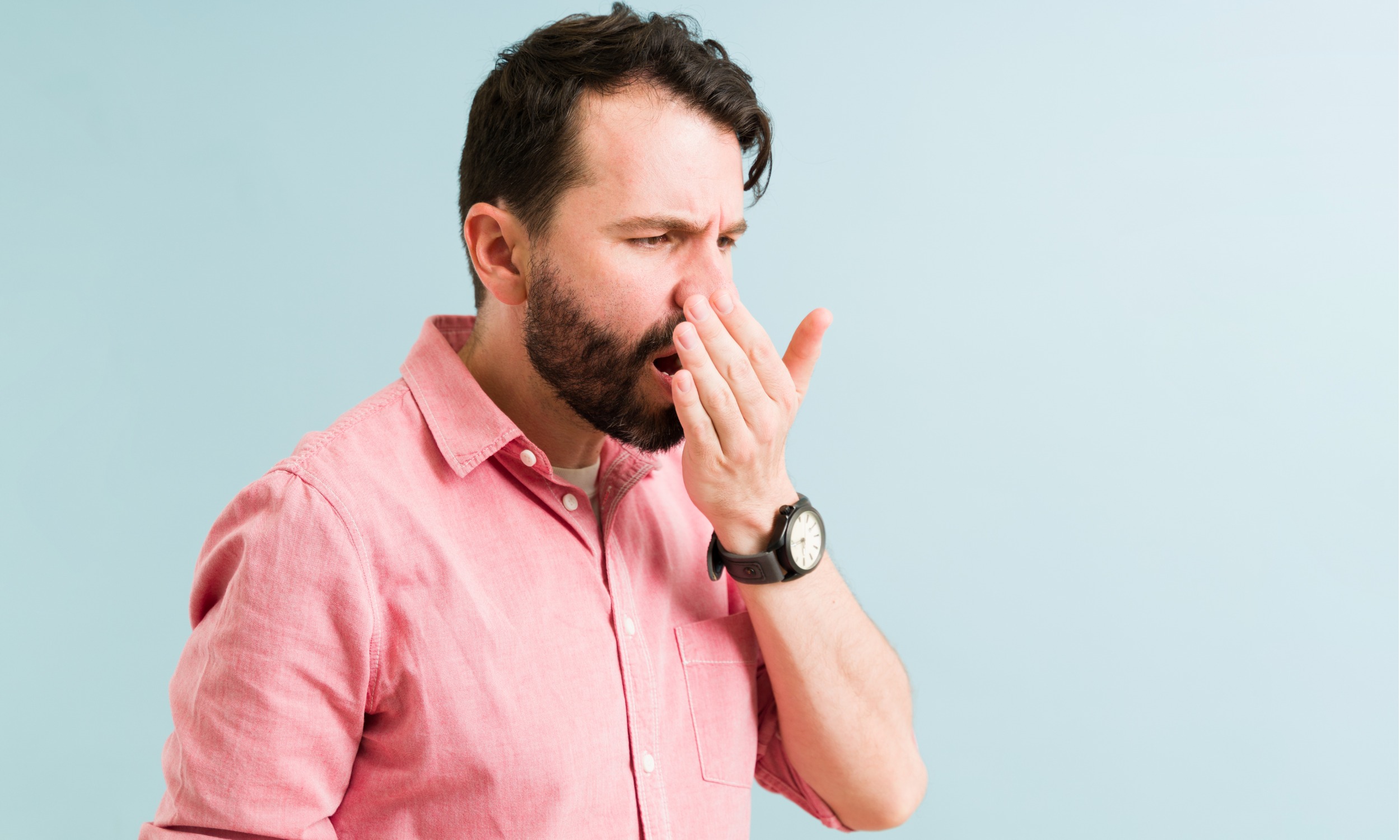
How to Get Rid of Bad Breath
While having bad breath (or halitosis) every once in a while isn’t generally a cause for concern, consistently having bad breath may cause embarrassment and be a sign of an underlying health condition. Therefore, treating bad breath can be important for your social and professional life as well as your self-esteem. Gum, mints, or mouthwash may temporarily solve the problem, but if you want to know how to get rid of bad breath for good, you need to find the underlying cause. Treating halitosis at the source is the only true way to eliminate the problem in the long term.
Common Causes of Bad Breath
When figuring out how to get rid of bad breath, it’s imperative to identify the underlying cause. Halitosis may be caused by a variety of factors, each with its own set of treatment procedures. By understanding the cause of your bad breath, you may develop a more targeted treatment plan. The following are some of the most common causes of bad breath:
The Food You Eat
It probably comes as no surprise that the food you eat may affect your breath. If you consume foods with strong odors, such as garlic or onions, these smells will likely linger on your breath. However, halitosis isn’t just caused by eating foods with strong smells. Any foods you eat may cause bad breath.
When food particles are left in your mouth, they may produce bacteria that cause bad breath. This is why it’s essential to brush and floss your teeth regularly. By removing food particles from your mouth, you may be able to remove the bacteria that is causing your bad breath.
Mouth Infections
Oral infections such as periodontal disease may be the root cause of your halitosis. If you have periodontal disease, you may experience symptoms such as red, swollen, or bleeding gums. Periodontal disease may lead to tooth loss and other serious health problems if left untreated.
If you notice your breath constantly smells bad and you have symptoms of periodontal disease or any other mouth infection, you should visit a dentist as soon as possible. These infections typically won’t go away independently and may require professional treatment.
Poor Dental Hygiene
As mentioned above, brushing at least twice daily and flossing once a day is essential for good oral hygiene. If you don’t brush and floss regularly, food particles and bacteria will build up in your mouth, causing bad breath.
In addition to brushing and flossing, it’s crucial to see a dentist for regular cleanings. During a professional cleaning, your dentist or hygienist will remove plaque and tartar from your teeth that you may have missed with at-home brushing and flossing. Maintaining good dental hygiene is one of the best ways to prevent and get rid of bad breath.
Tobacco Products
Smoking cigarettes or using other tobacco products is a leading cause of bad breath. In addition to causing halitosis, smoking increases your risk of developing other oral health problems such as gum disease and oral cancer. Moreover, using tobacco products has been linked to tooth staining and even tooth loss.
If you smoke cigarettes or use other tobacco products and want to get rid of bad breath, quitting is the best solution. However, quitting smoking is often easier said than done. Fortunately, there are many resources available to help you quit, including nicotine replacement therapy, counseling, and support groups.
Dry Mouth
Xerostomia, more commonly known as dry mouth, is another common cause of bad breath. When you have a dry mouth, your saliva production is decreased, which may lead to a buildup of bacteria in your mouth. Saliva helps prevent tooth decay and gum disease by washing away food particles and neutralizing acids produced by bacteria.
There are several reasons why you may be experiencing xerostomia, including:
- Chemotherapy
- Aging
- Dehydration
- Nerve damage
- Certain medications
- Tobacco use
- Drinking alcohol
- Recreational drug use
Finding ways to increase saliva production is the best way to treat dry mouth. For example, chewing sugar-free gum or drinking water throughout the day may help stimulate saliva production. If your xerostomia doesn’t improve with home treatment, you should see your dentist or doctor so they can determine the cause and provide additional treatment.
Tips for Getting Rid of Bad Breath
Now that you know some of the common causes of bad breath, you may be wondering how you can get rid of it. By making changes to your lifestyle and oral hygiene habits, you may help freshen your breath and prevent bad breath in the future.
Here are some tips for how to get rid of bad breath:
- Brush your teeth after each meal
- Floss at least once a day
- Try using a tongue scraper to remove bacteria from your tongue
- Change out your toothbrush every three to four months
- Quit smoking
- See your dentist regularly for cleanings and checkups
- Clean any dental appliances you use, such as dentures, aligners, or mouthguards
- Switch up your diet and avoid sugary or acidic foods
Utilizing these tips in your daily life may help you get rid of bad breath and improve your overall oral health. Remember, if you are experiencing persistent bad breath, it’s important to see your dentist or doctor to rule out any underlying medical conditions.
Freshen Your Breath With Abra Dental
At Abra Dental, we are committed to helping our patients achieve and maintain excellent oral health. Through our comprehensive dental care services, we can help you get rid of bad breath and achieve a healthy, beautiful smile. So whether you’re due for a cleaning, thinking about getting braces, or need help finding ways to freshen your breath, we’re here to help. Schedule an appointment today and start your journey to a healthier smile.
